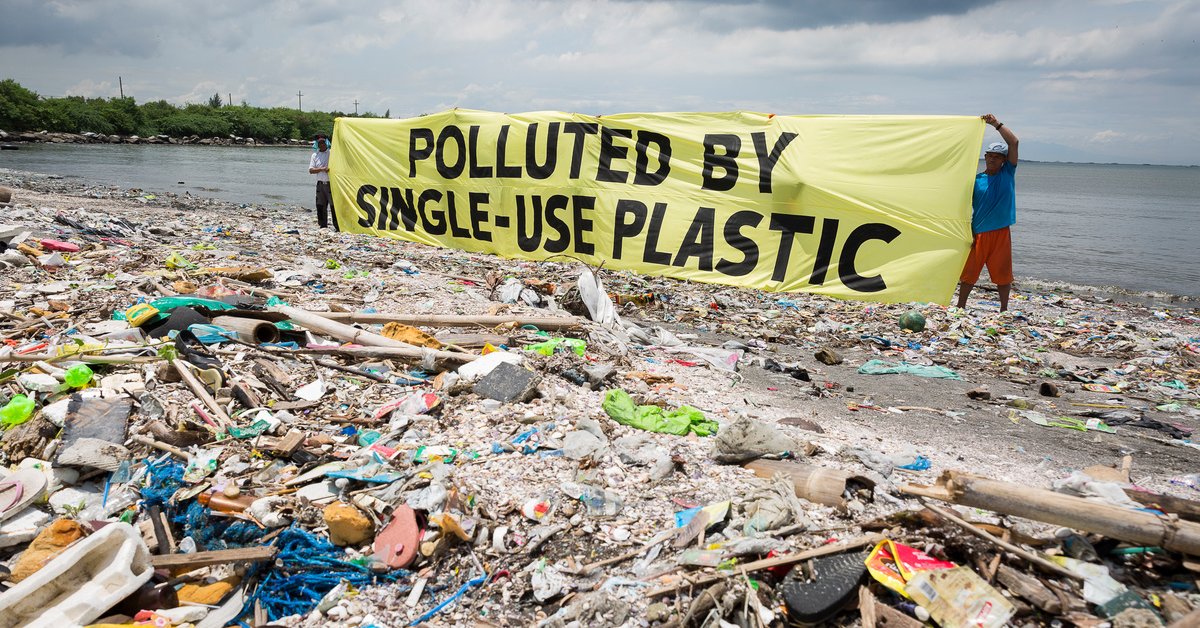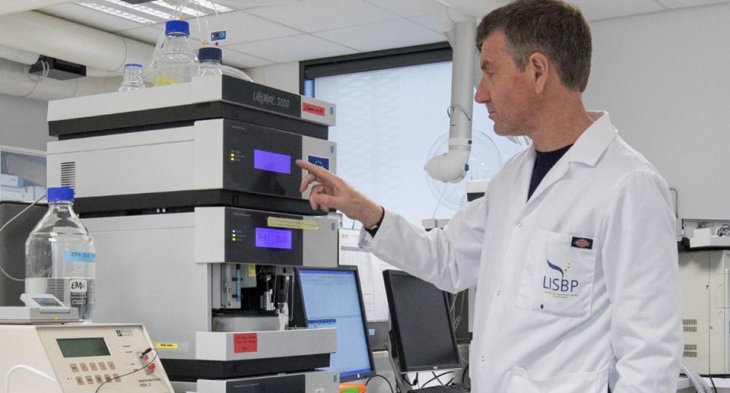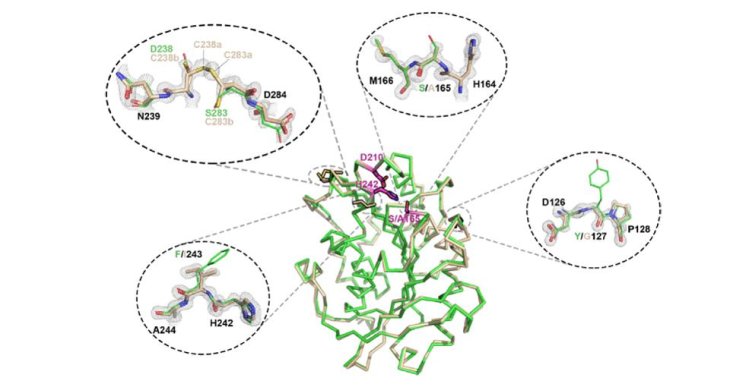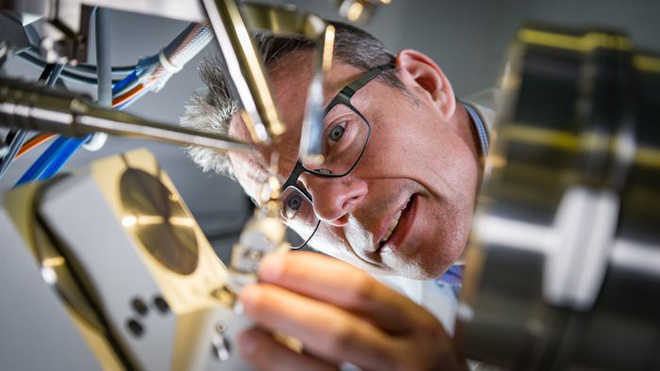Scientists Develop New Mutant Enzyme That Devours Plastic in Hours, Could Revolutionize Recycling Industry
Karamchand Rameshwar - Apr 17, 2020

The new breakthrough in plastic recycling was praised by many leading experts and it's expected to be used in plastic bottle production in the near future.
- Tripura, India Has Constructed Its First-Ever Plastic Road
- Coca-Cola Plans To Replace Its Plastic Bottles With Paper Ones
- Plastic Particles Found Inside Unborn Babies, Experts Called This A Matter Of Great Concern
Scientists have just created a special mutant bacterial enzyme capable of breaking down plastic. The context of the discovery of this enzyme is extremely strange: science knows its existence when conducting research on a compost heap of leaves.

Special enzymes can break down plastic bottles into small blocks, which can be used as materials in the manufacture of high-quality bottles. The current technology of recycling plastic bottles is still very "simple", so the recycled material is only enough to make clothes or carpets.
Carbios is the company behind the breakthrough that is capable of changing the production lines of many large companies, and they plan to recycle industrial plastic bottles on an industrial scale within the next five years. The first two big names have teamed up with Carbios to research and produce the new enzyme, Pepsi and L’Oréal cosmetics. Experts have called the new enzyme a big step forward in the field of recycling.
Numerous surveys and researches show that plastic waste is all over the Earth, from the deepest oceanic trench to the Arctic, affecting the habitat of millions of sea creatures. If this new enzyme is successful on an industrial scale, we will be able to significantly reduce the amount of waste released into the environment every year.
A new scientific report, published in the journal Nature, talks about the origin and how this mutant enzyme does its magic. The study began with the screening of 100,000 potential microorganisms for the best candidates, including the leaf compost bug (discovered since 2012).

“It had been completely forgotten, but it turned out to be the best,” said Professor Alain Marty from the University of Toulouse, France and also the chief scientist of Carbios.
The researchers analyzed the enzyme that the bacteria releases, and introduced mutations to enhance its ability to disintegrate PET plastic- which is the material that is used in producing the plastic bottles. The enzyme is still stable at 72 degrees Celsius, which is at the point that is said to be near perfect for rapid decomposition.
In the experiment, the scientific team used the optimized enzyme to decompose a ton of plastic bottles. They achieve incredible success when 90% of the waste is degraded after about 10 hours. This waste is reused to make a plastic bottle that meets food safety standards.

At present, Carbios has signed a contract with biotechnology company Novozymes, which has the ability to produce special enzymes from mushrooms, with the cost of the enzyme is only 4% of the cost of making new plastic from oil.
The cost of recycled PET by this method is still higher than the price of virgin plastic because the cost of collecting and heating the plastic before adding enzymes to break down is still high. But according to Martin Stephan, general manager of Carbios, lower-quality recycled plastic is still costly due to a lack of supply, so the technology still has a place.
"We are the first company to introduce this technology to the market," says Stephan's director. “Our goal is to be up and running by 2024, 2025, at a large industrial scale.”
The importance of plastic is difficult to measure in modern society, but the problem lies in the waste. Therefore, and to support a new and highly efficient recycling technology, we need to increase the collection of plastic waste.
Also around this time two years ago, a group of scientists accidentally created an enzyme that could break down plastic bottles. Professor John McGeehan, one of the people behind this study and also the director of the Enzyme Breakthrough Center at the University of Portsmouth, affirmed that Carbios is a leader in developing enzymes to break down PET. He enthusiastically called the new research a major breakthrough.

“It makes the possibility of true industrial-scale biological recycling of PET a possibility. This is a very large advance in terms of speed, efficiency and heat tolerance,” said Professor McGeehan. “It represents a significant step forward for true circular recycling of PET and has the potential to reduce our reliance on oil, cut carbon emissions and energy use, and incentivize the collection and recycling of waste plastic.”
>>> Sea Turtles Are Dying In Large Numbers Because They Eat Plastic, Mistaking It For Food
Featured Stories

ICT News - Feb 18, 2026
Google's Project Toscana: Elevating Pixel Face Unlock to Rival Apple's Face ID

Mobile - Feb 16, 2026
Xiaomi Launches Affordable Tracker to Compete with Apple's AirTag

ICT News - Feb 15, 2026
X Platform Poised to Introduce In-App Crypto and Stock Trading Soon

ICT News - Feb 13, 2026
Elon Musk Pivots: SpaceX Prioritizes Lunar Metropolis Over Martian Colony

ICT News - Feb 10, 2026
Discord's Teen Safety Sham: Why This Data Leak Magnet Isn't Worth Your Trust...

ICT News - Feb 09, 2026
PS6 Rumors: Game-Changing Specs Poised to Transform Console Play

ICT News - Feb 08, 2026
Is Elon Musk on the Path to Becoming the World's First Trillionaire?

ICT News - Feb 07, 2026
NVIDIA's Gaming GPU Drought: No New Releases in 2026 as AI Takes Priority

ICT News - Feb 06, 2026
Elon Musk Clarifies: No Starlink Phone in Development at SpaceX

ICT News - Feb 03, 2026
Elon Musk's SpaceX Acquires xAI in Landmark $1.25 Trillion Merger
Read more

Mobile- Feb 16, 2026
Xiaomi Launches Affordable Tracker to Compete with Apple's AirTag
For users tired of ecosystem lock-in or high prices, the Xiaomi Tag represents a compelling, no-frills option that delivers core functionality at a fraction of the cost.

ICT News- Feb 18, 2026
Google's Project Toscana: Elevating Pixel Face Unlock to Rival Apple's Face ID
As the smartphone landscape evolves, Google's push toward superior face unlock technology underscores its ambition to close the gap with Apple in user security and convenience.

Mobile- Feb 17, 2026
Anticipating the Samsung Galaxy S26 and S26+: Key Rumors and Specs
The Samsung Galaxy S26 series is on the horizon, sparking excitement among tech enthusiasts.
Comments
Sort by Newest | Popular